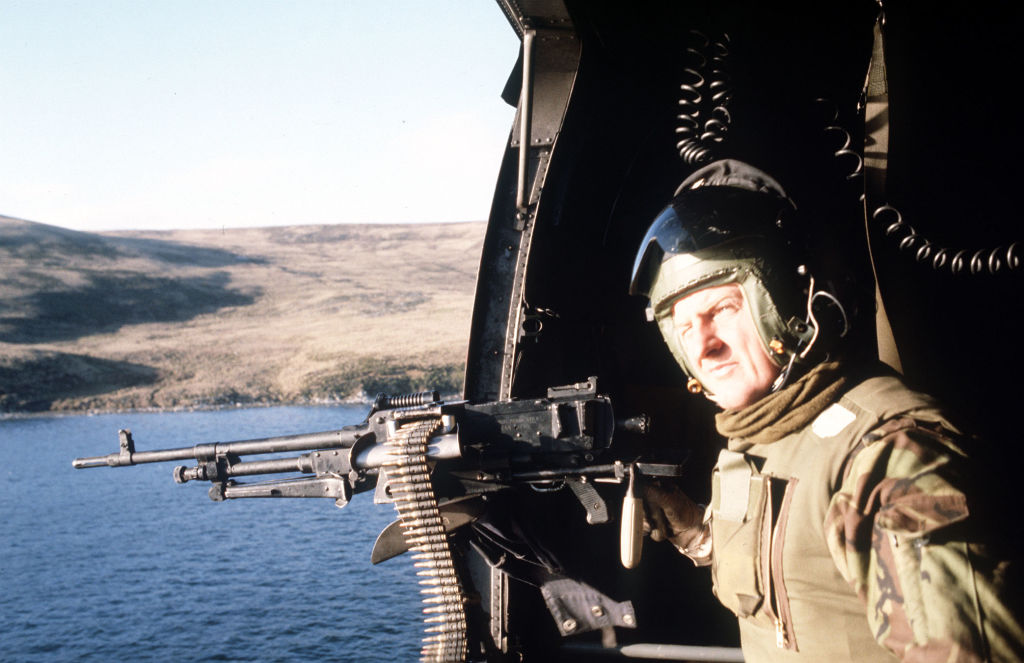During the 1982 Falklands War, the British were able to reclaim their territory from invading Argentinian forces.
During the war, the British received support from France but formerly secret documents show that the French may have been working both sides of the conflict.
In May of that year, the Argentine forces used Exocet missiles during an airstrike that killed 32 people. The missiles were fired at the British ships HMS Sheffield and Atlantic Conveyor.
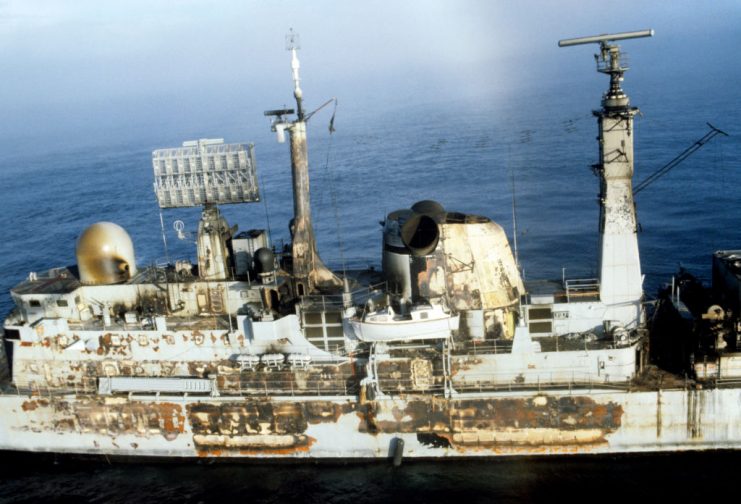
The missiles were sold to Argentine by France prior to the war before it seemed likely the two countries would enter into combat with each other.
When the war began, France embargoed weapons sales and support for Argentina. They also allowed the British to use French ports in West Africa and provided them with information on the weapons and planes that they had sold to Argentina.
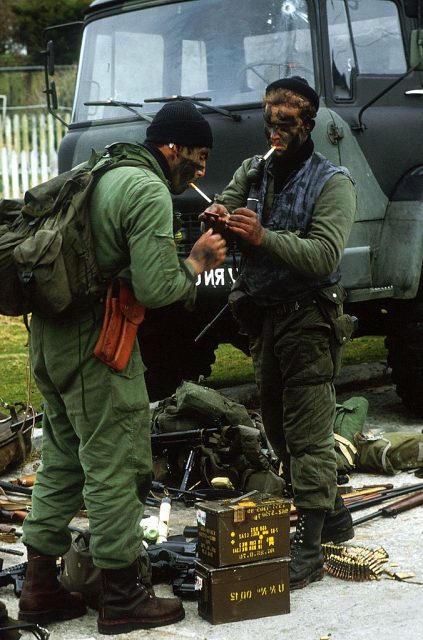
French President Francois Mitterrand made the decision to aid the British. While the UK’s Secretary of State for Defence Sir John Nott praised France as being the UK’s “greatest ally,” members of the French government were not pleased with their president’s decision.
The French ambassador to London, Emmanuel de Margerie, wrote a scathing description of Margaret Thatcher as “Victorian, imperialist, and obstinate” with a “tendency to get carried away by combative instincts.”
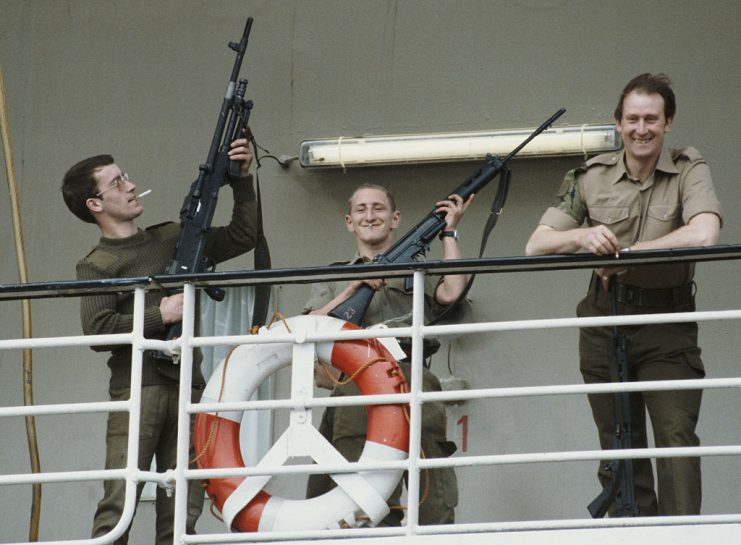
French official Bernard Dorin decried Britain’s “superpower arrogance” and their “profound contempt for Latinos.” He made these claims in a document titled, “The Falklands: Lessons from a Fiasco.”
A BBC investigation has uncovered evidence that, even though the embargo was in place, a team from France worked with the Argentine troops in the Falklands during the war. The team allegedly tested the missile systems to ensure they would fire.
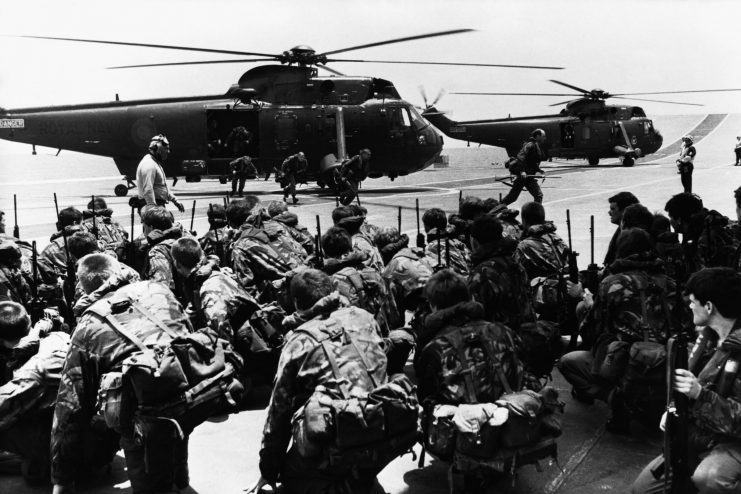
Three of the missiles failed and the team repaired the issue which allowed the missiles to be used against British troops.
During the war, 659 Argentinian and 253 British troops were killed.
The Falklands War began when Argentinian troops invaded the Falkland Islands on April 2, 1982. The Falklands are a British territory located in the southwest Atlantic Ocean off the coast of Argentina.
Argentina has long claimed rights to the islands, which they call Malvinas. Argentina inherited the islands from the Spanish crown in the early 1800s.
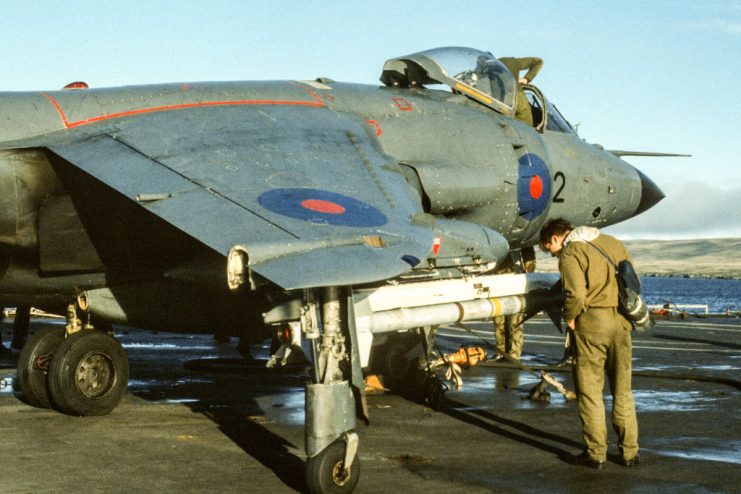
Most of the residents of the Falklands are of British descent. Britain claims rights to the islands based on their long-term administration of them and on the principle of self-determination for the islanders.
Argentina did not believe that the UK would respond with force if they invaded the islands. But, despite being 8,000 miles away, British Prime Minister Margaret sent a force of warships and hastily refitted merchant ships to reclaim the British territory.
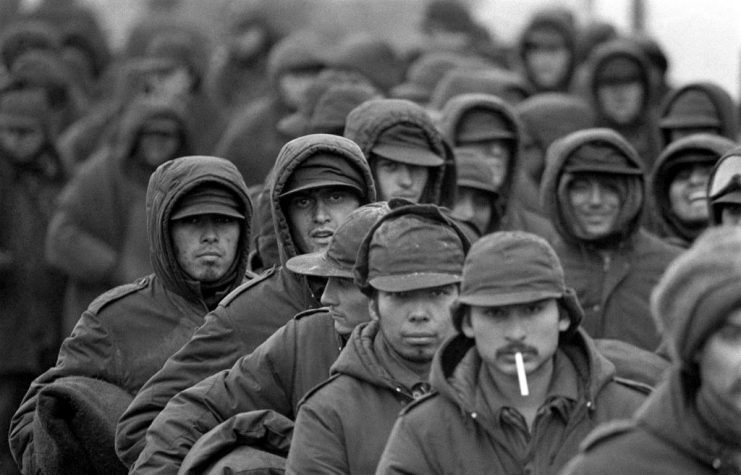
The British submarine HMS conqueror sank the Argentine cruiser General Belgrano on May 2, 1982. 300 crew were lost with the ship. After that, the Argentine military kept their ships in port.
But the Argentine air force was still a threat to the British. Their aircraft sank several British warships.
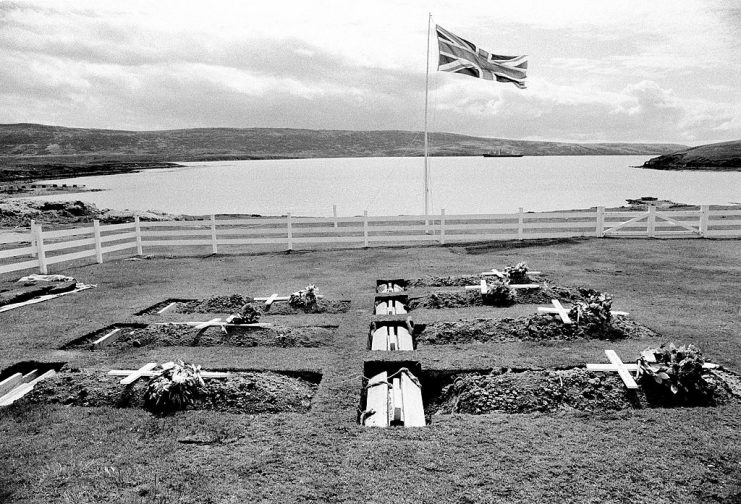
Still, the British were able to land on the Falklands on May 21, 1982. The conscripted Argentinian troops had plenty of time to dig in and fortify their defenses but they were not trained well enough to defend against the oncoming British forces.
Another Article From Us: British Commando Took Out ISIS Fighter With a WW2 Fairbairn-Sykes Knife
On June 11, 1982, the battle for the capital, Stanley, was underway and the Argentinians surrendered on June 14, 1982.
